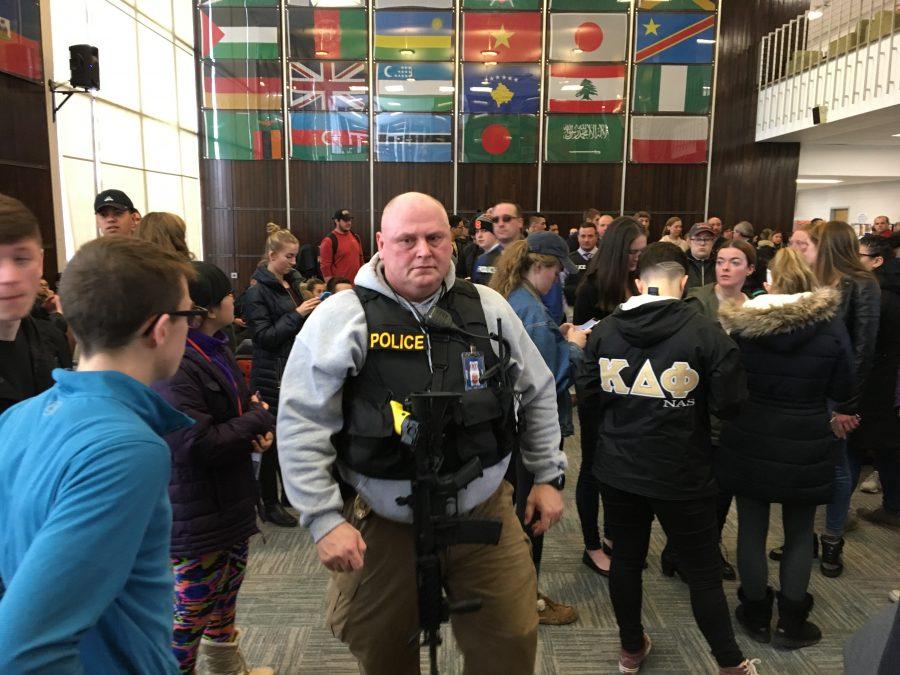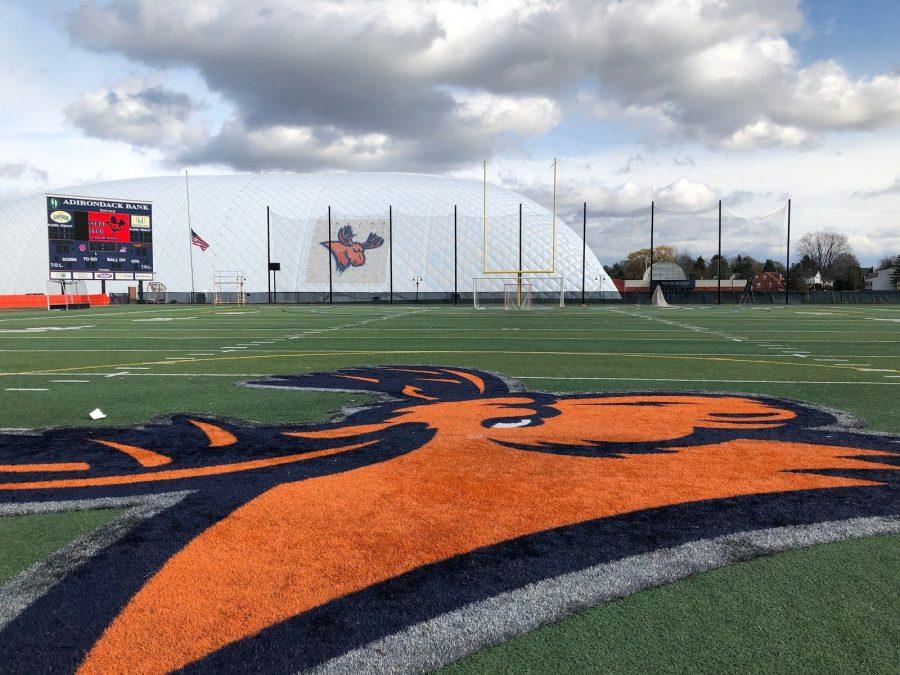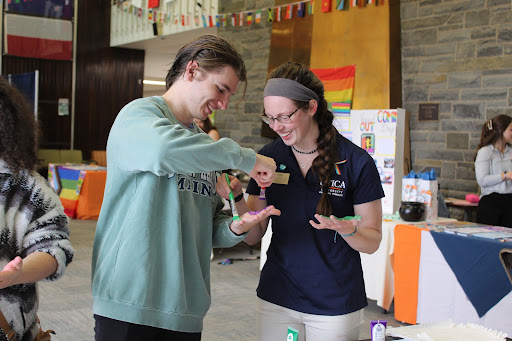Occurring just three weeks after the horrific shooting at Marjory Stoneman Douglas High School in Parkland, Florida, it was no wonder that students, faculty and staff assumed the worst after being notified that the campus was placed on mandatory lockdown on March 5, 2018, due to a “real and credible threat” made towards Utica College.
The threat in question was made by a call to Campus Safety from an individual who claimed to be armed inside Gordon Science Center. The individual then issued a challenge to safety officers, as if to say, “Come and get me,” the Utica Police Department confirmed to The Tangerine last year.
By the time the lockdown ended and students, faculty and staff were allowed to leave campus, law enforcement determined that the threats were made as a practical joke. The next day, authorities arrested Fahrudin Omerovic, an online student at UC, after it was determined his phone was the source of the anonymous threats.
But while Omerovic, 24, was just sentenced to 12 years of prison time in Oneida County Court last week for making the terroristic threats that caused the lockdown, the events of that overcast March day still linger on in the collective consciousness of the Utica College community.
Aside from the panic and confusion, senior Anand Buch vividly remembers one thing after being under lockdown in Strebel for hours — Omerovic, who was not implicated in the crime until March 6, was several feet away from him and hundreds of other students.
“If he actually had a weapon on him, I could have been one of the first ones down,” Buch said.
A year later, Buch still remembers the shock he felt upon learning that Omerovic was the lone culprit in law enforcement’s investigation into the source of the anonymous threats made to Utica College.
“It was terrifying when I saw the picture (Omerovic sitting across from him) in the news,” Buch said. “He was literally right across from me and my friends.”
Like Buch, senior Ella Andronovich also waited inside the lockdown in Strebel just feet away from where Omerovic sat.
“He was sitting right there, like I saw him [in Strebel],” Andronovich said. “That’s definitely going to stay with me.”
Before being moved to Strebel with other students, Andronovich said that she was barricaded in a classroom for hours — so long, she said, that students who needed to use the bathroom were forced to urinate into trash cans.
“It was really traumatic for a lot of people, but the fact he was joking about that and thought it was funny; I don’t think he realized what he was doing,” she said. “He didn’t think about all the trauma he caused.”
President Laura Casamento still remembers her reaction upon learning a threat had been made to UC.
“It was just several weeks after the Parkland shooting and my heart just sank,” she said. “I just thought, ‘Oh my gosh, it’s happening here.”
While students still remember the lockdown and where they were for the duration of it, the events of that day beg the following question — is Utica College better prepared if another lockdown were to occur?
According to Casamento, yes.
“I think that lockdown made us say, ‘OK, this (updating security measures) isn’t something that we can do a little bit at a time,’” Casamento said. “We have to devote significant resources towards this, and we have to get it done in one to two years.”
After the incident, UC began locking entrances that previously remained open and has installed camera surveillance systems around campus and in parking lots. With plans to install automatic locks with swipe card access still being worked out, the college estimates that investment in security technology will reach $800,000 by next year, Casamento said.
The results of this investment, combined with heightened awareness to threats since the lockdown, make for a safer, better-prepared campus, said Director of Emergency Management Shad Crowe.
Since starting his position at UC, Crowe has noticed a collective desire from students to learn more about safety and emergency preparedness measures. This is encouraging, he said, because high-tech surveillance technology can only do so much.
“All of these colleges and institutions are trying to figure out what the best package of technologically is to help prevent something like this from happening,” Crowe said. “Sure, you want your best technology and best safety measures in place. But you also need people to be aware of what’s happening. If something looks suspicious, talk to somebody.”
Senior Cody Cowles and junior Dan Wilcox are two students looking to increase awareness and safety through the newly formed Emergency Management Club.
“As students, we have a better vantage point in terms of getting things across to peers, and having an organization makes it easier to reach out,” Wilcox said. “We can better connect to other students as opposed to the administration sending out emails.”
Cowles, looking to enter law enforcement, and Wilcox, an EMT, both observed confusion from fellow students and faculty on how to react once the lockdown went into effect. With this in mind, both are hoping to make a difference through student-led emergency management instruction and certification.
“We’re students but we’re also adults, so it’s up to us to start taking charge of ourselves,” Cowles said. “We’re part of the community, and we can start making a difference in it; we’re not supposed to sit back and let everyone do things for us.”







































































































































